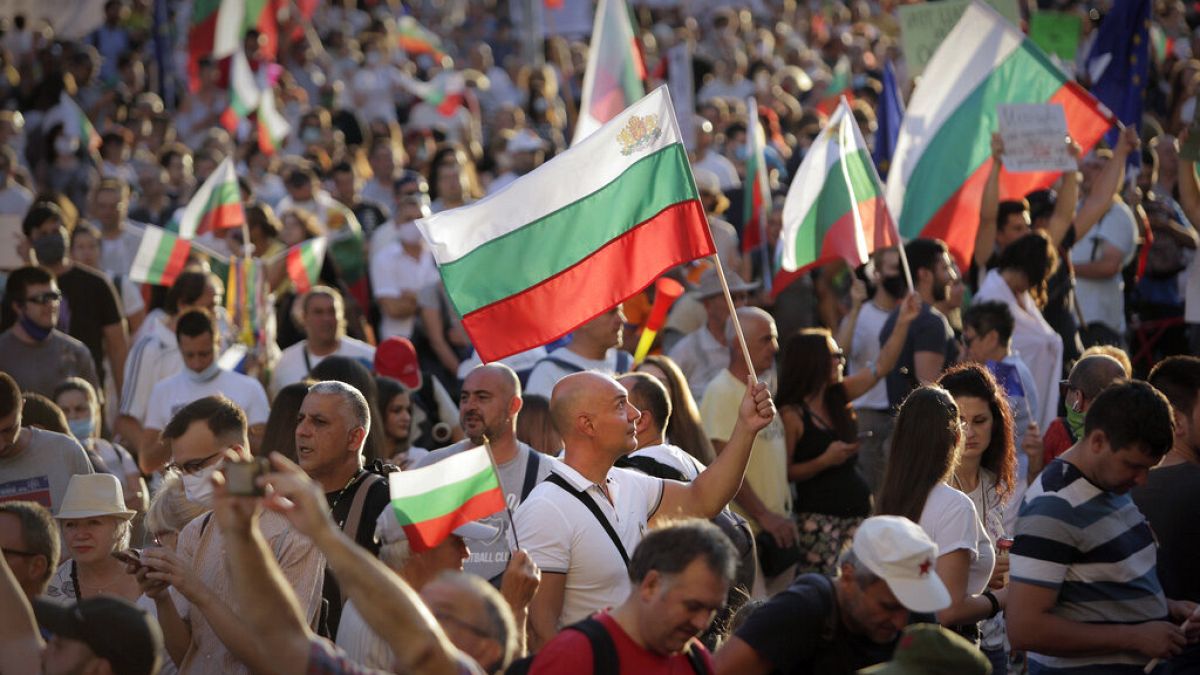Demonstrators have taken to the streets with the same demands for a month — they want the country's entire cabinet to resign and elections to be held.
The Bulgarian prime minister's offer to resign on Wednesday in an attempt to calm month-long protests appeared to have fallen on deaf ears.
"If I'm the problem, then I'm leaving right now," Boïko Borissov said, but only if it would allow his majority to remain in government until the next elections in March 2021.
A few hours later, protesters gathered for their daily rally; many said they remain unconvinced.
Thousands of delegates of the ruling GERB party came out to support the leader as he took the stage to make his announcement.
"I don't want there to be any tension because of me. We stand by the unity of the nation, whatever the cost, because we have difficult times ahead of us, and I'm not saying this to scare people," Borissov said.
Demonstrators have taken to the streets with the same demands for 28 days — they want the country's entire cabinet to resign and elections to be held.
Borissov is being challenged for alleged links between his majority and certain oligarchs, accused of influencing the executive to further their interests.
Until their demands are met, demonstrators have vowed to continue blocking major roads in the capital Sofia and across the country.
These road blockades are part of a new protest strategy of civil disobedience.
"We've been blocking the crossroads in Sofia, and we've been building these base camps. Our goal is to draw attention to our demands," a protester told Euronews.
Demonstrators are also calling on the controversial chief prosecutor Ivan Geshev to resign. Some have even gone on hunger strike.
"Five of us are on hunger strike, but more people are joining in. We tried to convince an older person to quit because he really wasn't well," protester Vera Ivanova told our reporter in Sofia.
"It's just not worth it to sacrifice your life for someone like the prime minister."
Hristo Panchugov, a political analyst from the New Bulgarian University in Sofia, said protesters are unlikely to stop their blockades and marches because the "stubbornness of the government is simply leading to more radicalisation within the protests". This, he says, has led to a polarisation of public opinion in Bulgaria.
He added that "the big question now is who will be able to embody the alternative model of doing politics".
Bulgaria's next parliamentary elections are scheduled for the spring.
According to a poll carried out this week by pollster Alpha Research for Bulgarian newspaper Dnevnik, Boïko Borissov's GERB party, which advocates stability in the current context of the pandemic to justify maintaining its majority, would come out on top with 26.7% of the votes.
Thirteen years after joining the EU, Bulgaria remains the most corrupt country in Europe, according to the NGO Transparency International.
